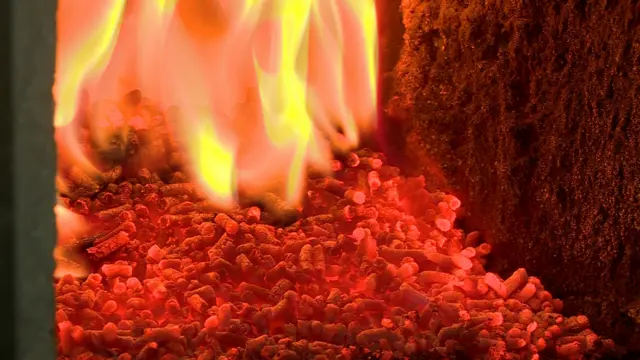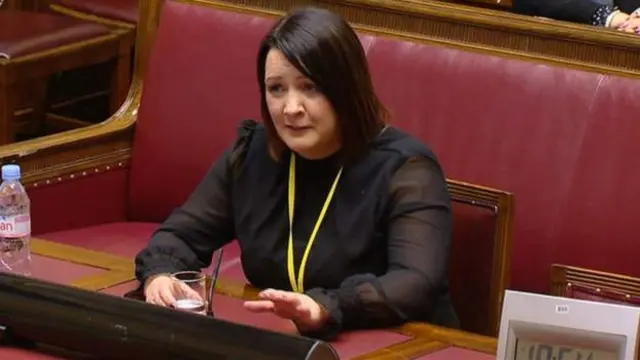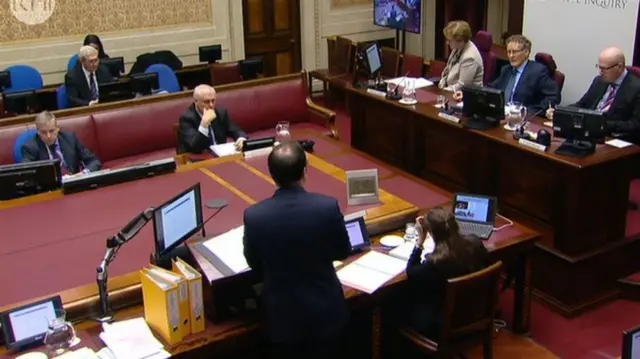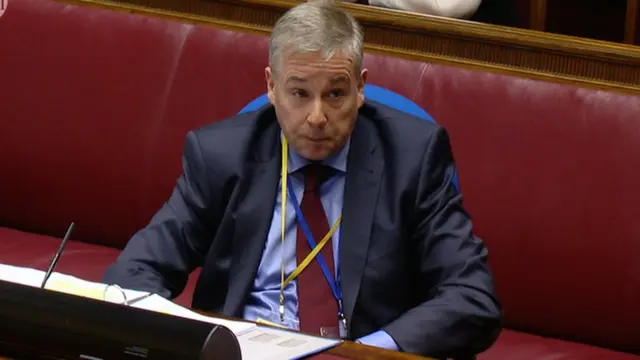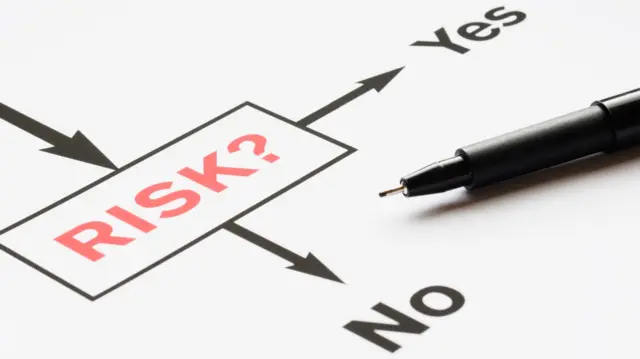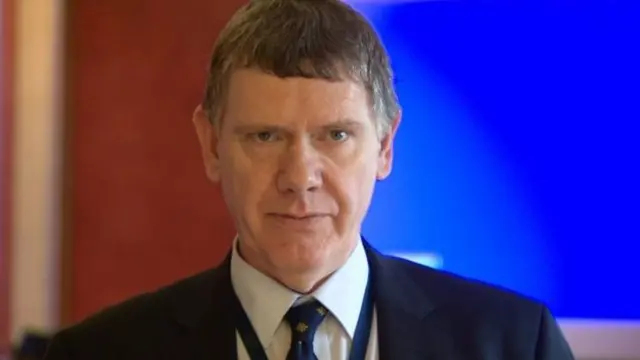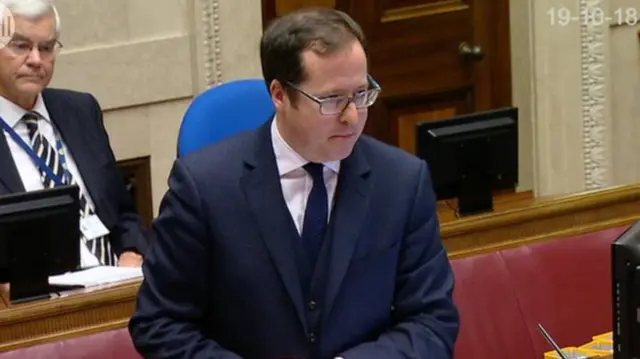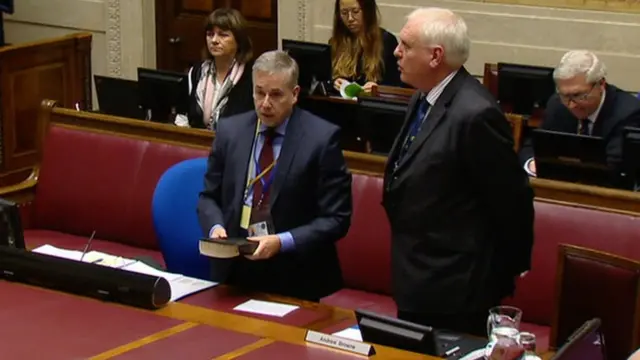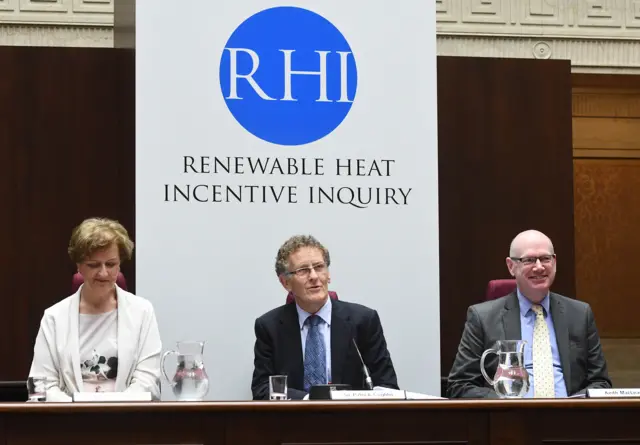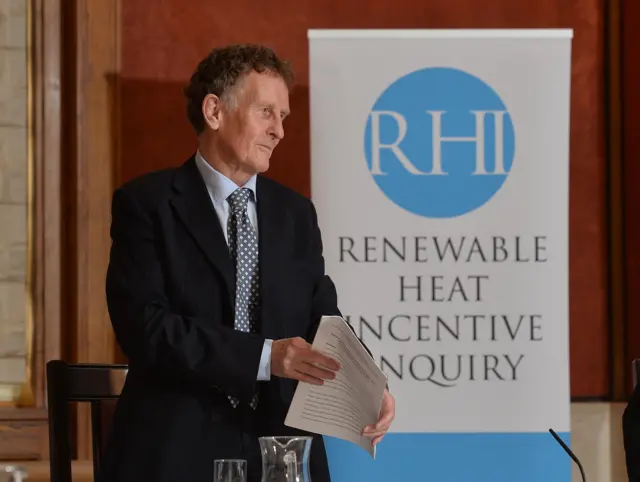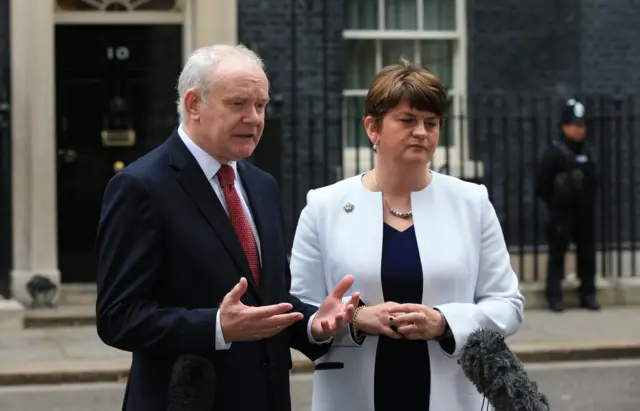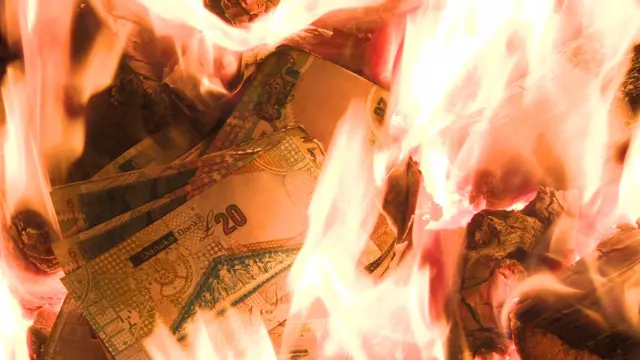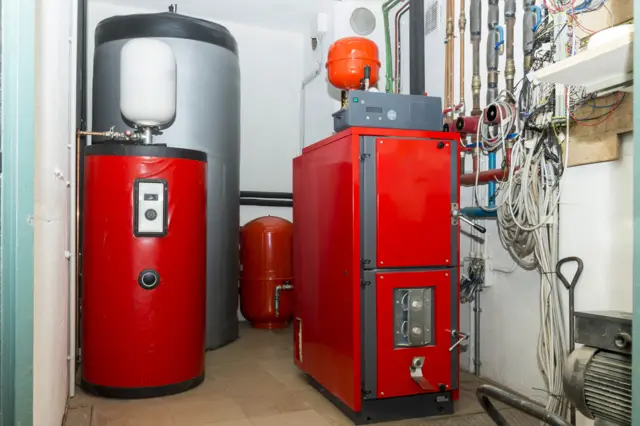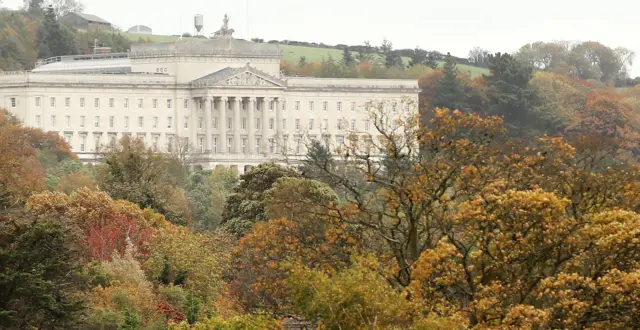'Officials fixated with getting more money instead of fixing problem'published at 12:30 BST 19 October 2018
DETI officials were so "fixated" with trying to get more money to cover the RHI scheme's burst budget that they didn't look deeper to find out what had caused the problem, says Michael Woods.
Civil servants had a "perception" that the big issue with the RHI concerned its budget and therefore didn't tell internal auditors about the scheme's lack of spending controls, he tells the inquiry.
 Image source, Getty Images
Image source, Getty ImagesIf they'd "stepped outside that problem" and tried to establish how the budget problem had occurred then a better solution could've been found, he adds.
The question of whether more public money should actually have been thrown at the scheme "didn't seem to really be at the forefront of people's thoughts".
